Electric cars have come and gone over the years, gaining and waning in popularity as eco-friendly fashions have flared and faded, but this time they’re here to stay. Of course, the government’s proposal to ban the sale of new internal combustion-engined cars by 2032 plays its part in their assured future, but it’s the recent rash of battery-powered superminis that really points the way to their permanence.
Small cars are big business but the margins are slim, so to invest hefty sums packaging them with expensive electrical internals is as strong an EV endorsement as you’ll get from the automotive industry. Almost all of the major players are in the process of launching a pure-electric supermini or city car, while many have already arrived.
Perhaps the most eagerly anticipated is the Mini Electric, which has been on the cards since the Mini E began field trials over a decade ago. While rivals have taken a cooking approach to their EV babies, Mini has spiced up its offering with a 181bhp motor (shared with the BMW i3s) and Cooper S badging, making this a hot hatch without the environmental hitch.
The 134bhp Peugeot e-208 (you can leave your Yorkshire-tinged French hatchback jokes at the door) trails the Mini on performance but promises greater practicality, both in terms of the space available in its five-door shell and its promised 217- mile range. The Mini can muster just 144 miles, although the claims for all three cars here should be taken with a pinch of salt, as we shall see.
Both have to give best to the 238-mile WLTP figure for the Renault Zoe, which appears here freshly facelifted and complete with a more powerful motor – now 132bhp – and greater stamina from larger 52kWh lithium ion cells. Unlike its rivals here that have been developed to be propelled by fossil fuels as well as electricity, the Renault is exclusively an EV. It’s also Europe’s best-selling small electric car by miles.
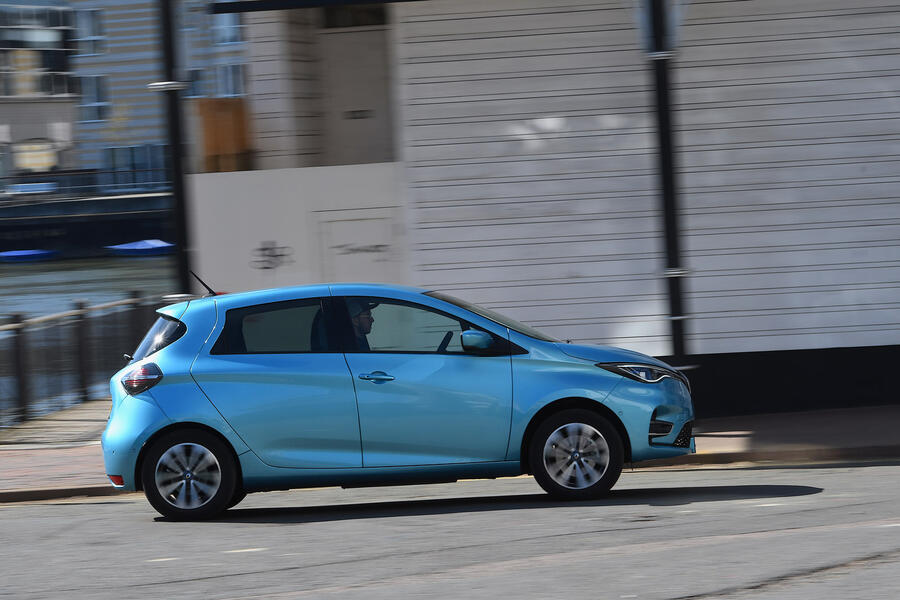

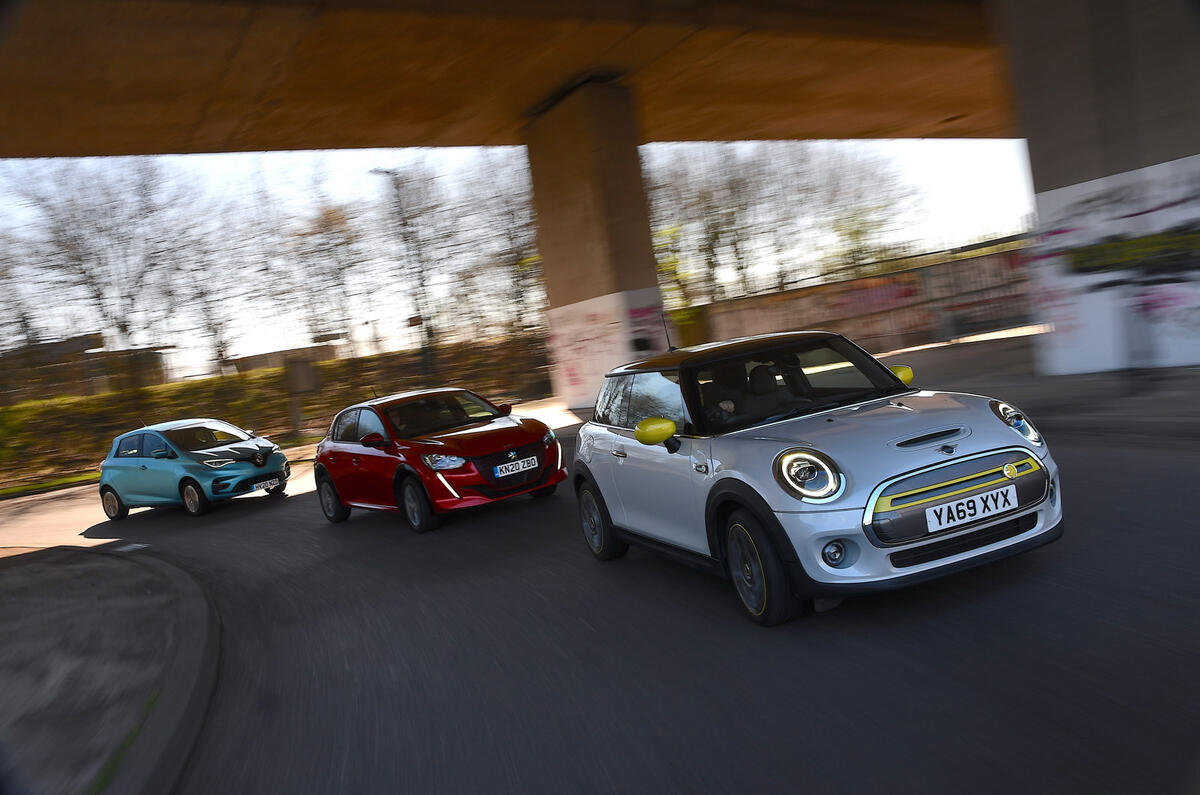










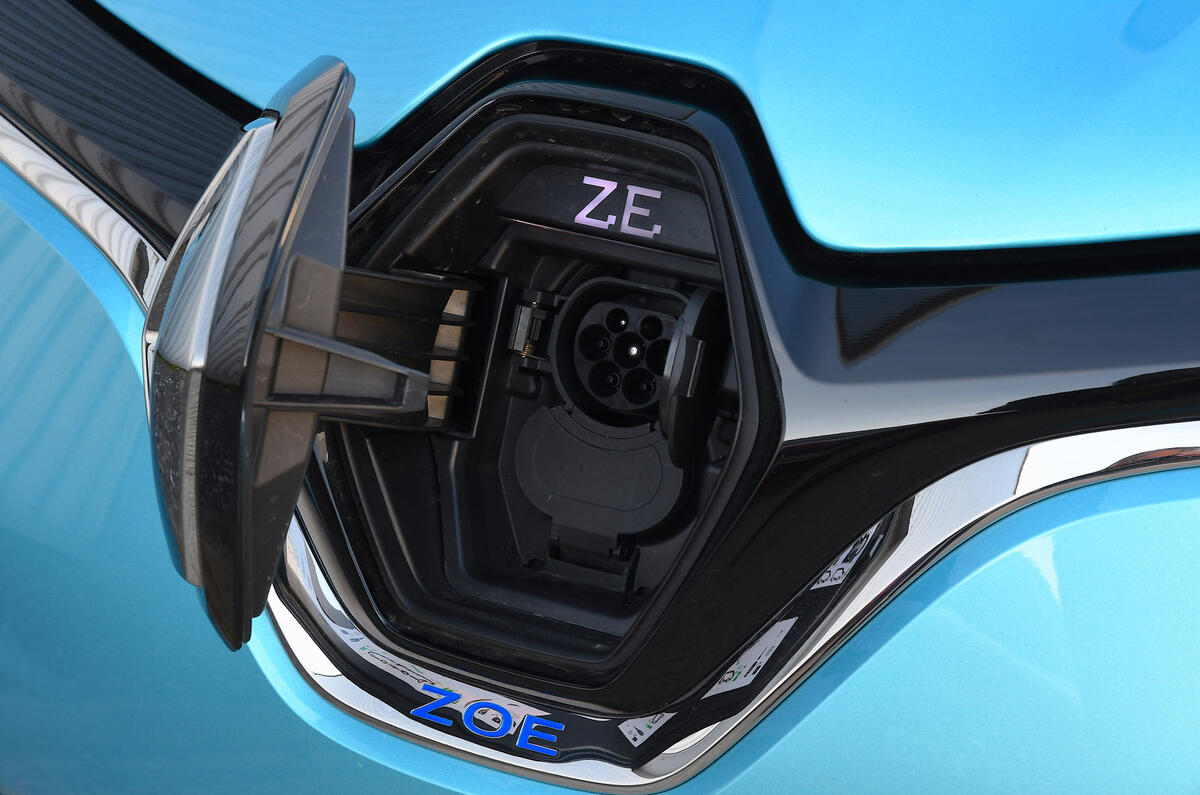


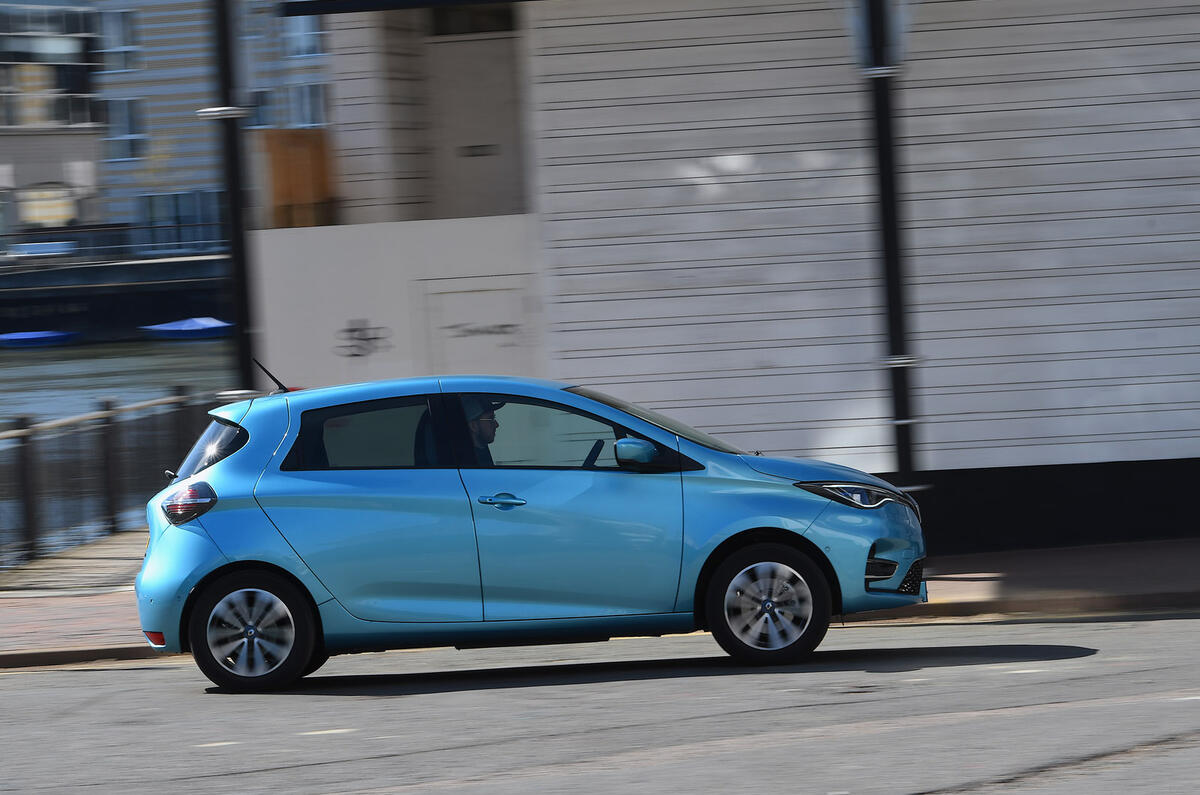




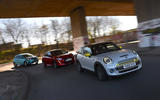




















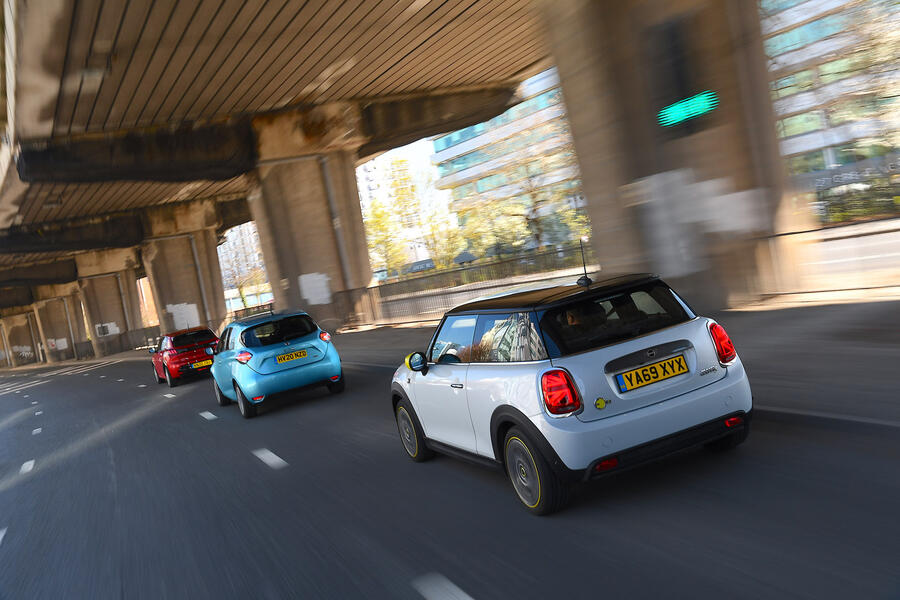




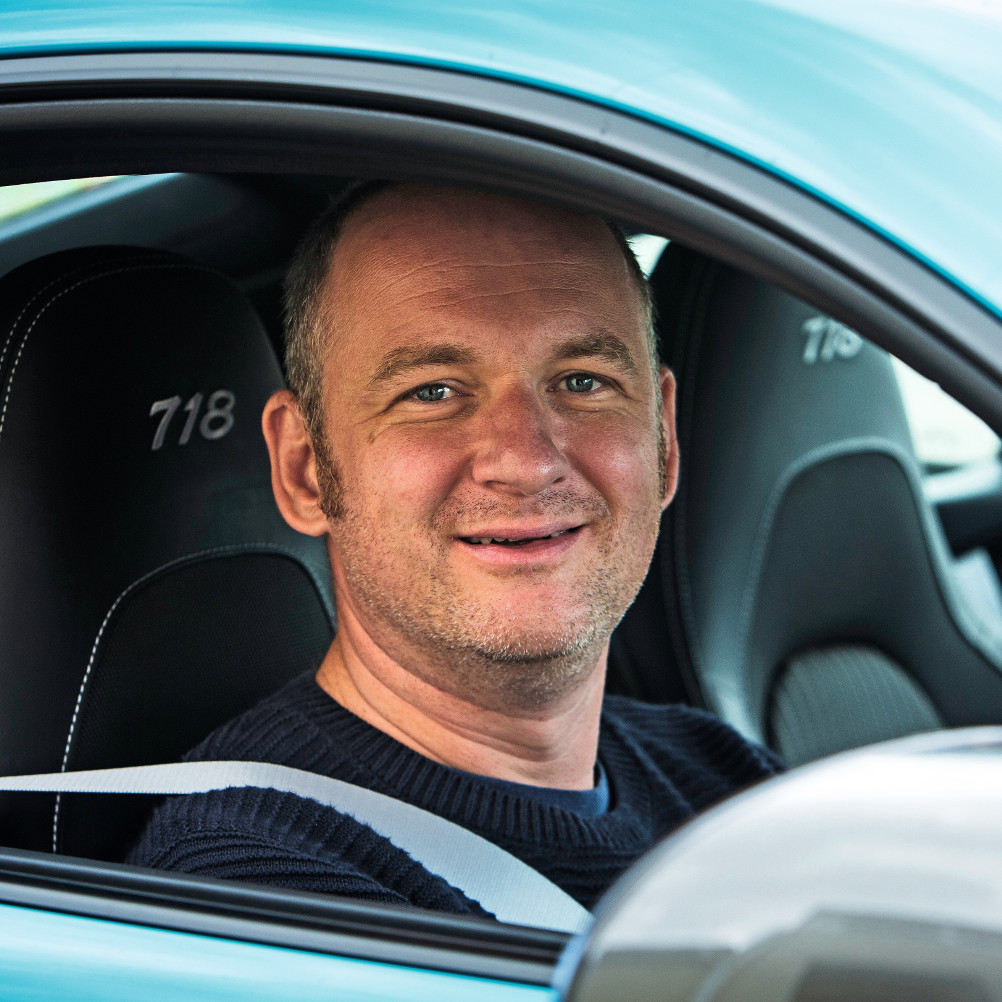



Join the debate
Add your comment
None of these cars can
None of these cars can perform as an all-round vehicle.
Instead, their limited range means they can be used only as local runabouts.
And a multi-vehicle household is not exactly a green proposition.
@si73
Same as with normal engine cars, the range experienced during the road test was less than the official figures given by the manufacturer after the car was tested officially in a laboratory
@russ13b
Thanks, makes sense, it was the as tested I wasn't sure about.
Aside from environmental claims versus real world
To me, a motorist, needing a method of transport, these EVs make absolutely no financial sense.
They continue to be much too expensive and compromised. And we aren't being 'spoiled for choice' whilst they continue to all be like that.
Come the 2032 ICE ban, I'll be using a combination of bicycle and public transport (God forbid) unless there are some huge improvements in how EVs work, along with some far more realistic pricing.
There is no 2032 ban
The ban would be on new car sales from 2035 or 2040, or it might be as early as 2032. It does not apply to existing cars. That would never be an election winning promise! So just buy a new petrol car in 2031 and there is no problem.
2032 ban has other implications
I appreciate that the ban refers to new car sales, but there will no doubt be a period of pain for ICE car owners leading up to that - i.e. extra taxation in many forms, lower fuel availability and higher prices from fewer petrol stations, grief from people launching social media witch hunts of people still driving ICE cars - all things that will strongly encourage people to buy an EV asap even before the ban is brought in.
I am environmentally and socially conscious but I'm not a fool - hence why I won't be forced into buying an EV until they improve and prices become realistic, hence my comment about using my bicycle and public transport instead of my ICE car when I don't need to (rather than buying an EV) to do my bit for the environment.